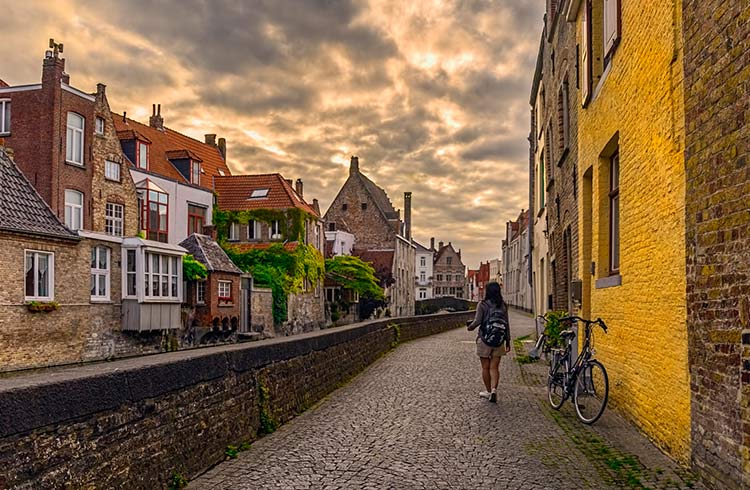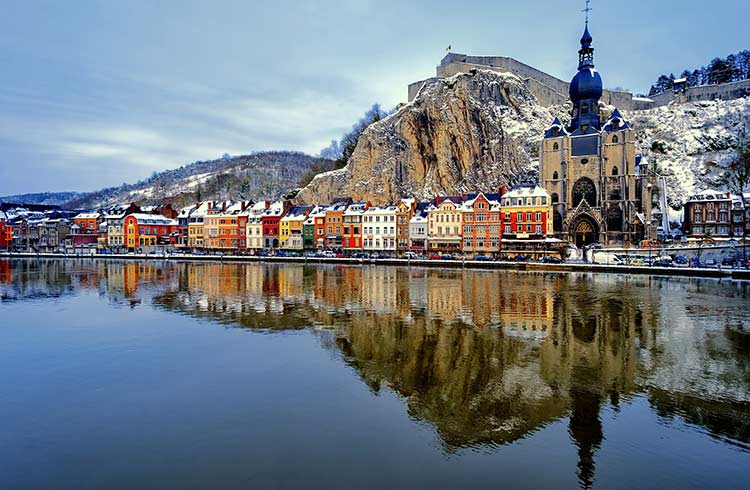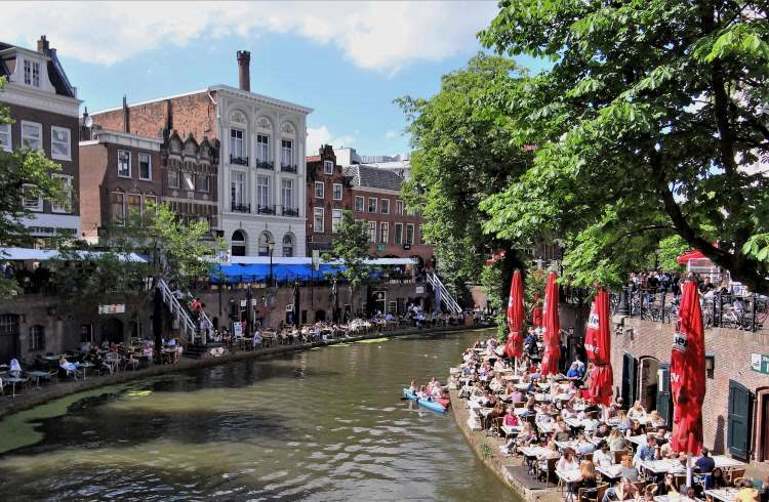Belgium has three official languages, each spoken in different parts of the country. Don't get tongue-tied – find out where to speak Dutch, French, and German before you go.
 Photo © Getty Images/Dhwee
Photo © Getty Images/Dhwee
Belgium's linguistic diversity stems from a series of political and cultural conflicts that started many hundreds of years ago, and continues to this day. It's important travelers are aware of the sensitivities that surround language, and how it changes depending on where you're traveling in the country.
- Language regions in Belgium
- Dutch and French, the main languages
- Bilingual signs around Belgium
- Belgian dialects
- Political divide in Belgium
Language regions in Belgium
Belgium is divided into three regions: Flanders in the north, the Brussels-Capital Region in the middle, and Wallonia in the south.
To make matters a little more confusing, the Flemish speak Dutch but do not consider themselves Dutch, and the Walloons speak French but do not consider themselves French. There is also a small region of German-speaking Belgians on the German border.

Dutch and French, the main languages of Belgium
The primary language in Belgium is Dutch, spoken by approximately 60% of the population. The Flemish dialect is almost identical to the Dutch spoken across the border in the Netherlands, but some differences in vocabulary have led some to refer to the language colloquially as "Flemish".
French is the second most common language in Belgium, spoken by almost 40% of the population. Many Flemish people can also speak French as a second language. Like the Dutch spoken in Flanders, Belgian French is mostly similar to the dialect spoken in France, but there are small differences in vocabulary and pronunciation.
German, while one of the three official languages, is much less prevalent and spoken by less than 1% of the population.
Bilingual signs around Belgium
As a result of the language split across the country, many road signs and other notices around Belgium are written in both French and Dutch.
In Brussels, the main language spoken is French. Like many capital cities, the city is multilingual, perhaps because it is the de facto capital of the European Union, and the high number of foreign officials and diplomats who live there. All public services and signs are in both French and Dutch.

Belgian dialects
To really test your language skills, in some parts of the country languages are broken down even further into regional dialects. As you travel around Belgium, you may hear variations such as East Flemish, West Flemish, Walloon (mostly spoken by older people in rural areas), Picard, Low Dietsch, and Luxembourgish. Antwerp also has one of the few Jewish communities worldwide that still speak Yiddish as its dominant language.
Political divide in Belgium
The language divide is just one part of much greater segregation between the Flanders and Wallonia regions. When you're talking to locals in the north, it is common for them to describe themselves as being "from Flanders" rather than "from Belgium". Indeed, Flanders has its own parliament and government, and several political parties continue to campaign for Flemish independence.
As a result, it's wise to be sensitive to these cultural and linguistic differences when talking to locals in Belgium. To be on the safe side, start every conversation in English. Most Belgians are bilingual (many are even trilingual) and speak fluent English.
Language guides
Because not everyone speaks English as fluently as the Belgians – and also because it's good manners to know some of the local lingo – take advantage of our 24 travel phrasebook apps for your iPhone. From Arabic to Korean, these apps are packed with essential phrases to know before you go.
Related articles
Simple and flexible travel insurance
You can buy at home or while traveling, and claim online from anywhere in the world. With 150+ adventure activities covered and 24/7 emergency assistance.
Get a quote


10 Comments
. , . not sure if this helped, i just hit the space bar until i saw you can comment
Just a comment; The way it is written here it looks like only Flanders has its own parliament, which is not the case. There are - depending on who you talk to- nine parliaments in Belgium, with two of them being in Wallonia. To top up this beautiful hierarchical mess we have eight governments; with two again for Wallonia.
But this again, proves your point that we are sensitive to everything that relates to the differences between Wallonia and Flanders
I am super confused now, I will be visiting Belgium this summer. English is my first language & I can speak French (not 100% fluent but I can get by in France), I was going to learn Dutch but now I am worried the Dutch Inwas going to learn will not be correct.
If you want to learn Dutch, please do so ;-)
You will be able to use it both in Flanders and in the Netherlands. It's a bit like British and American English - mainly different accents because spelling is identical.
I might be going to Belgium because I am in french immersion in school and my parents want to make that useful. Would Belgium be a good place to go where theres not much english? if so; what cities? If not; any other country suggestions?
Friend and I had an overnight stay in Diegem and decided to walk around the town. It was early evening, and there was festival going on. We went to a pub, and I tried conversing in German - no one would speak. They looked through us like we weren't there. Very strange place.
You should go to liège that's the most partying city.
Devlin, people don’t speak german in Diegem. And to some people the German invasion of 1914 and 1940 has left deep scars. In fact this also the reason why some parts of the country speak german. It was part of germany before ww1.
IF you get caught throwin up a flanders set in wallonia you better catch yourself lacking cause those wallonia's dont play games with the flanders and you gonna get smacked up real quick.
Flemish Dutch, French and German. That’s despite fewer than 1% of Belgians speaking German as their primary tongue.
Belgians are, as a nation, extremely committed to language learning. Children in the German-speaking part of the country start learning other languages from the age of three. Eurobarometer, meanwhile, reports that 88% of Belgians believe that the improvement of language skills should be a policy priority.